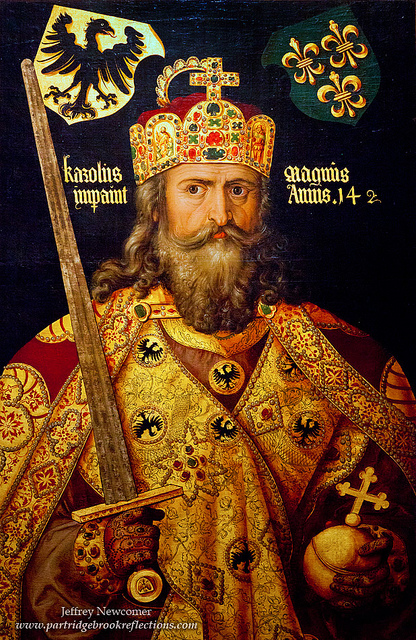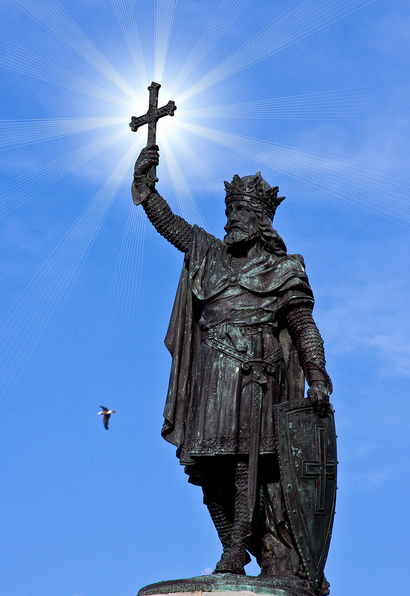POLITICS AND CHRISTIAN CIVILIZATION I
  
POL 3123 Catholic Social Theory:
Ancient and Medieval World
POL 3123 is a continuation of POL 2223.
It begins with a study of Jewish Law by examining the Torah, historical documents, and Thomistic Theology. Following a thorough study of Jewish economic, political and social life, it progresses to a study of the economic, politiical and social instituions associated with Christendom. Special attention is given to the the Incarnation and subsequent establishment of the Kingdom of God in the midst of the Roman Empire.iii
Ancient political thinking reached its apex in the writings of St. Augustine who understood that Christ had established the City of God to conquer Rome and then the nations of Europe. Following the collapse of Rome, the “New Israel of God”, turned its gaze towards Gaul and unconquered pagan forces beyond the Rhine that had defied the invincible legions of Rome.
Christendom as a temporal reality was established on Christmas Day 800 AD, the day Pope Leo III crowned Charlemagne as the first Holy Roman Emperor. Following Charlemagne across the Rhine, as God’s People had once followed Joshua across the Jordan, the Christian men of Europe assaulted the “Gates of Hell” which Christ had promised could not withstand the onslaught of His Church (Matt 16:18). Employing both its spiritual and temporal swords the saints and soldiers of Christendom penetrated Lucifer’s line and one by one broke his empire into pieces" as foretold by the Prophet Daniel:
“In the days of those kingdoms the God of heaven will set up a kingdom that shall never be destroyed, and his kingdom shall not be delivered up to another people, and it shall break in pieces, and shall consume all these kingdoms, and itself shall stand forever.“
This course examines establishment of the temporal (political-economic-social) arm of Christendom, which reached its apex in the High Middle Ages as expressed in the writings of Saint Thomas Aquinas, Saint Bonaventure and Saint Francis of Assisi.
GREATEST and GREAT BOOKS INCLUDE:
The Emperor Constantine: The Edict of Milan
The Emperor Theodosius: The Code of Theodosius (excerpt)
St. Augustine: City of God (excerpt)
Josephus: History of the Jews
(excerpt)
St. Benedict: The Rule
King Alfred the Great: English Book Of Jusice (Dooms)
St. Francis of Assisi: Selected texts
Paulus Orosius: Against the Pagans
St. Thomas Aquinas: Treatise on Law (From Summa)
St. Thomas Aquinas: De Regimine Principium (De Regno-finished Tolomeo of Lucca)
Einhard: Life of Charlemagne
Christopher Dawson: Early Devopment of Rome and Christianity as Soul of the West
Niccolo Machiavelli: The Prince (excerpt)
Martin Luther: Letter to German Nobels; 95 Thesis; Let Your Sins be Strong
Hilaire Belloc: Europe and the Faith
|



